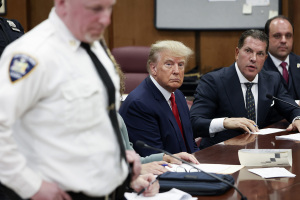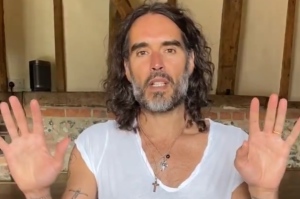World Bank Leaders Call Somalia Famine 'Manmade'
Kenya Wolfgang Fengler, lead economist for the World Bank, has come out to speak against the famine that is ripping through Somalia and killing thousands of men, women, and children daily.
The World Bank lead economist has said in a phone interview with Reuters that the crisis is “manmade.”
She told the news group, “Droughts have occurred over and again, but you need bad policymaking for that to lead to a famine.”
The world has been captivated by images of starving children in the drought-ridden Somalia but the World Bank argues that the famine is much more a result of over exaggerated food prices and civil conflict than drought.
Fengler’s statement comes on the heels of a newly released World Bank report that shows that the prices of local food staples in Somalia like maze, wheat, and sugar have soared up 240 percent since 2008.
The prices have risen due to poor harvests and also a shrinking of global food stocks.
The report also argued that America’s production of corn ethanol was additionally contributing to the rising food prices across the Horn of Africa.
World Bank President Robert Zoellick said in a statement on Monday, “Nowhere are high food prices, poverty and instability combining to produce tragic suffering more than in the Horn of Africa.”
Zoellick also suggested that Somalia and its Horn of Africa neighbors will remain in the “danger zone” so long as food prices remain high and food stocks remain low.
The World Bank‘s Fengler is not the first to come out and place the blame for the Somalia famine beyond nature.
Secretary of State Hillary Clinton spoke in Washington last week on the famine and stated, “Every few decades the cycle repeats. And it would be easy to throw up our hands and blame it all on forces beyond our control. But this cycle is not inevitable.”
She also argued that the world has the resources and tools to make hunger a “memory” and argued it could be done so if the political will was present among global leaders.




























